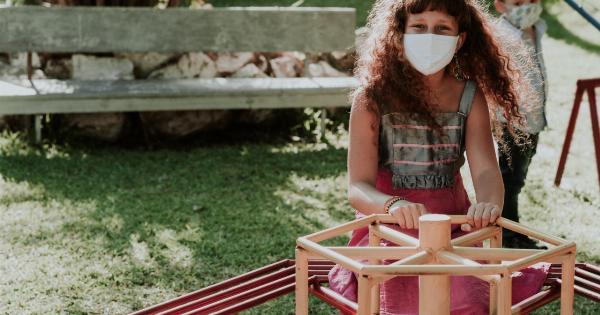Summer is a time for fun in the sun, but it’s important to remember to protect our bodies from potential harm.
While we’re quick to lather on sunscreen and put on hats to shield our skin and eyes, we often overlook the importance of protecting our children’s ears. Here are some tips to keep your child’s ears safe this summer.
1. Avoid Loud Noises
Exposure to loud noises can damage the delicate structures in your child’s ears, leading to temporary or permanent hearing loss.
Make sure to keep your child away from loud environments such as concerts, fireworks displays, and sporting events without proper ear protection. Earplugs or earmuffs specifically designed for children are excellent choices.
2. Use Ear Protection at the Pool
Swimming is a popular activity during the summer, but it’s important to protect our ears from water-related issues such as swimmer’s ear.
Investing in a pair of earplugs specifically designed for swimming can prevent water from entering the ear canal and causing painful infections. Make sure to dry your child’s ears thoroughly after swimming as well.
3. Be Mindful of Cotton Swabs
Many people use cotton swabs to clean their ears, but this can lead to more harm than good. Inserting cotton swabs too deeply into the ear canal can push wax further in, potentially damaging the eardrum.
It’s best to avoid using cotton swabs altogether and opt for safer alternatives like earwax drops or consulting a healthcare professional if excessive wax buildup is a concern.
4. Protect Ears from the Sun
Just like our skin, our ears can also get sunburned. Apply sunscreen to your child’s ears when spending time outdoors, especially during peak sun hours.
Wearing wide-brimmed hats or using umbrellas can provide additional protection from harmful UV rays.
5. Limit the Use of Headphones
In today’s digital age, many children enjoy listening to music or watching videos using headphones. Excessive use of headphones, especially at high volumes, can contribute to long-term hearing damage.
Teach your child to use headphones at a moderate volume and limit their usage to short periods of time.
6. Teach Proper Ear Cleaning Techniques
Good ear hygiene is essential for maintaining ear health. Teach your child to clean their ears gently by using a cloth or tissue to wipe the outer part of the ear.
Avoid inserting any objects into the ear canal, as this can cause damage and increase the risk of infection. Encourage your child to inform you if they experience any discomfort or pain in their ears.
7. Ensure Proper Fitting of Ear Protection
If you’re using earplugs or earmuffs to protect your child’s ears, make sure they fit well and are comfortable. Ill-fitting ear protection may not provide adequate noise reduction or water sealing, increasing the risk of damage or infection.
Check the manufacturer’s instructions for proper fitting guidelines.
8. Be Aware of Allergies
Some children may be more prone to ear infections or other ear-related issues due to allergies. Be mindful of any allergens that could trigger a reaction and take appropriate measures to avoid exposure.
Consult with a healthcare professional if you suspect your child has allergies that may affect their ears.
9. Encourage Ear Health Discussions
It’s essential to talk to your child about the importance of ear health and the potential risks associated with neglecting it. Encourage them to speak up if they notice any changes or discomfort in their ears.
Take their concerns seriously and seek medical advice if necessary.
10. Schedule Regular Hearing Check-ups
Regular hearing check-ups with a healthcare professional can help detect any early signs of hearing loss or other hearing-related problems.
Make sure to include a hearing assessment as part of your child’s routine check-ups, especially if they have a history of ear issues or exposure to loud noises.





























